William Ormond Morris History
by his wife Rae Nola Baker Morris
Ormond was born on May 6th, 1914. Ormond was the 6th child of Joseph Hyrum and Emily Rosetta Edwards Morris. He was born in their home in Greenville, Utah. This home was a hewn log, one room home, (14'x14') with a canvas ceiling that was white washed. The logs were filled in between, one log to the other, with lime and sand. It was kept very clean and was a pleasant home, made so by the generous gift of love that dwelt there.
He lived as a child, "over across the river," as it was called, on the outside of the main gathering part of town, until his family moved into his mothers' parents home (William Edwards). He was happy when he was allowed to ride in his little red wagon with side stakes on the sides, which was pulled behind the load of household equipment. Greenville was a little town located 5 miles west of Beaver Utah. It is located in green fields of meadow grass. Mostly Mormon settlers lived there. he remembers the older ones as D. James Williams, Orson Backer, Samuel Edwards, Steven Barton, Dan Barton, Bert Danse, Joseph Morris and John Horton. It was an active little town, having its own LDS meetings, Relief Society and schools. their social life was hard to beat for good clean entertainment. All holidays seemed to have their place in the hearts of the people. They used their own talent. Schools and Church furnished a good part of their fun. Greenville was honored in having Sister Eliza R. Snow come to organize the Primary in 1870.
In 1935 their school was moved to Beaver. This distracted from the spirit of the town, but being the people they were they didn't let this stop them from carrying on. They still had Sunday Schoool, Sacrament meeting, Primary, Relief Society and Mutual. Until 1941, Greenville had no electric power, using until then the coal oil lamps.
The 4th of July in Ormond's day was a special fun day starting at break of dawn with the faithful men that had the experience of using dynamite, such men as Clark Griffith, David and Jack Reese, Bill Blackett and Lawrence Thompson. They took joy in being first in the county to be heard. What fun it was to set some off close by ones sleeping quarters. This started the day with fun and excitement. There was always a parade. Uncle Sam, usually was played by Amasa Barton, who fit the part great. He was a tall, straight man and enjoyed taking the part. he would pick up the Goddess of Liberty and the Queen for the day, escorting them through out the day. There were floats, wagons decorated pioneer style, little covered wagons, buggies, tricycles, girls with pretty dresses and hats, followed by painted Indians in dress of gunny sacks, feathers and riding bare back ponies bringing up the end of the parade. Goddess of Liberty and Queen for the Day would have 2 attendants each.
Greenville had a tithing lot, next lot west from where Ormonds parents lived (in the old Edwards home).An old grainery was by the scales used for weighing the produce. Their share of tithing, they would leave after weighing the wagon load of produce.
Ormond attended school to the 8th grade in Greenville, then went to Beaver High School. In his sophomore year, his Dad agreed to let him quit school, telling him he'd have to work each day until school was out if he quit. He said "I'd rather quit and owrk than go". Ormond said "Dad saw that I kept my word, he made me work".
One of his choice memories as a child was going to the grist mill in Beaver with his Dad with grain to be ground for their winters flour. Walt Messenger operated the mill. He would exchange his wheat for hard wheat because it made better flour for what Dad wanted it for. The mill was located 300 yards from the canal of water. The canal had a large wheel built into it with buckets attached every foot or 2 feet apart. As the wheel turned the buckets would fill up with water, that caused the belt attached to have power to run the machinery to grind the wheat. He loved to watch this work and found enjoyment in seeing Walt after the grain was ground, for he would be covered with grain dust...eyebrows, hair, face and clothes, from head to toe.
He remembers the fun times he had walking through the fields to school. He walked with Lola, Barbara, Agnes, Violet, Nell and Flossie. They usually met challenges such as high water run off from the mountains. The bridge they walked across would be washed down the river until it lodged along the river downstream. The men would get their horses and drag it back to its spot again. It only went two thirds across, then planks put to reach the rest of the way across. One time they met a new mother skunk with a trail of little ones following behind. That was one time they gave up the trail willingly.
When marble time came in the Spring, his mother had a lot of holes in overalls knees to patch. She was noted for her neat patching job. Emily Morris was a very neat and clean person. Saturday was always cleaning day. Rain or shine, it was a must. Ormond's sister Violet inherited her cleanliness. When we did Mothers fall and Spring cleaning, she would turn the table over and scrub the bottom of the table. Nothing was untouched on house cleaning days.
The Morris family always remembered the Lord at the beginning and closing of the day. Dad would never miss calling upon the Lord, even if alone at the breakfast table. In early morning before going to feed he would have his breakfast. Clark Griffith remarked that "I never could beat Jode Morris up. Whenever I got up I would see his lights on. I could set my clock by watching for Jodes lights to come on."
Their home had two fireplaces which they kept boarded up. Only at Christmas time would they open them. It took alot of wood to heat the large home. One time, some bats came down the fireplace. It was a scary thing to get them to leave. I could see why they kept them covered after that experience.
Ormond was a good post hole digger and fence mender. I loved to go with him when he did this. Keeping good fences was important in keeping the cattle from getting bloated in the Spring of the year. Many a cow had to be stuck in her side to let the excess feed drain out. Many a cow was saved by this process after getting through a hole in the fence that was not repaired.
Ormond remembers a fast ride over to Knefes' while he was raking hay. A clap of thunder came and frightened the team and they took off. They were headed for the canal. He knew he was in for a dipping. He was raking hay at the time. Hay was flying in all directions. Just as they got to the canal the team turned, and he was very happy.
Dad was very generous and trusted everyone. Mother was down to Nells. Ormond was out in Pine Valley working. A tramp came to Dad's door and wanted something to eat. Dad fed him a bit. Being the kind of Dad that he was, no one went hungry if he could help it. He told him to come in the morning and he could have breakfast. When I went down to check on Dad before going to bed, he told me the plans he'd made with this man. I was shocked and begged him to feed him outside and please not to let him in to the table. He just grinned and said Don't worry, he's alright. No need to say I didn't seem to find much sleep in my eyes that night. I got up early and hurried down to Dad's, trying to be brave. Sure enough Dad has this man sitting up to his table, treating him as royal as if he was a long lost friend.
Ormond, Agnes &Vyron, Donna Lee, Bill and Violet go fishing
I never remember Dad taking the lords name in disrespect. He did have one word he used when the time his him just right. When he would get upset with something he'd say "Oh, Butts" and leave.
A pot bellied stove was in the middle of the meeting house that was across from his home. It was always fun for the people of the town to go to the hills for the winters wood to burn in wintertime. There would be around 6 or 7 wagons with men leave for the hills in the early morning, coming back with loads of wood for the widows also. The ladies of the town would prepare a supper for them on returning. That was then followed by a dance at night. Quadrilles and lots of other old time dances were called by good callers during the evening to dance by. His dad was very good at calling. He had many cute songs that went along with his calling.
In those days everyone knew everyone and neighbors were neighbors. All rallied around in time of need and shared their sorrow and giving their assistance, showing they cared. It was this custom for many years in the event of death, the body was prepared for burial in the home. The neighbors took turns sitting up through the night with the corpse until the funeral. The ladies would make the burial clothes and showed love for the bereaved. A coin would be put over their eyes first thing after death.
Ormond remembers seeing his Dad, Jode Morris, when cutting grain and the string broke, taking some stocks of grain and tying the heads together making it hold until it was loaded. It's interesting to hear what they could do if a store was not close to run to.
Dad was called to help make a movie, "Covered Wagon", as a carpenter, west of Milford, (Nevada) An Indian accidently run into him and broke his shoulder. He returned home wearing a long black beard. When he came home the children didn't know him. Later, still having his beard, the children and May Heslington laughed at his Dad and Ormond never forgave May for doing such, (laughing) to his Dad.
Nell and Violet, his sisters, used a curling iron that they put in the top of the lamp to heat. Many times he said he could smell that awful smell of burning hair when the sisters curled their hair. A choice time he remembered was going with his brother Neal in the Surrey buggy, with lamps in the front running board, tassels around the top and padded seats. How important he felt. They would take supplies to Nell and Violet, that stayed in Beaver while going to school at Murdock Academy. Later this surrey was made into a sleigh, which was a joy to ride in. He came up to Beaver where Agnes, Vyron and I were going to school and took us on a sleigh ride. We went at noon hour, planning on returning but it was a ride of no return for school that day.
Mother had a feather bed. It was her pride and joy. Many feathers she washed and saved to get enough for this bed. She was the one that always made her bed. Only during sickness did I try to make it. I think she would have rather I had left it as it was. I just didn't have the attribute it took in making it. Ormond remembers going to the sheep herders camp to pick up doggy lambs, as one of his choice things to do. The sheep herder would make some sour dough biscuits and cook lamb chops for him.
Ormond and his daughter Karen
Ormond grew up as a farmer, but had many experiences at other jobs, mining, service station attendant, section helper on the railroad, going to Cedar to train for auto refinishing skills. His last job was for Geneva Steel in Orem. Started in 1952-1977 as a fork lift operator. At his retirement he was given certificates of honor and much praise was given him for his good work. He is a father of six children, grandfather to 28 and great grandfather to 19 at this time (July 1987). He is noted for his jovial and pleasing personality, liked by all who know him. He was operated on January 2, 1983, having 2 feet of his colon removed. He is practically confined to his chair and bed. He walks with a cane for balance. His joy is his family, who show much respect and love for him. He has been a good provider for his family, who show much respect and we are proud to carry the Morris name. We, his family consider him an exceptional man with honesty, sincerity, and with love for his family his greatest concern.
This was written in July of 1987. Ormond passed away on May 14th, 1988.
Ormond and his sister Violet Morris Blackett 1980
Labels
- Agnes Hannah Edwards Blackett 1869-1910 (1)
- Alexander Phillip Chesley 1814-1856 (1)
- Barbara Morris (1)
- Bessie Marie Fordham Edwards 1923-2011 (1)
- Daniel Barton (1)
- Daniel King Barton 1854-1934 and Helen "Ellen" Ann Horton 1860-1934 (1)
- David Miller 1827-1890 (1)
- Donna Lee Blackett Atchison O'Brien 1935-2007 (1)
- Elizabeth Huntington Edwards 1830-1901 (1)
- Emily Roena Morris Stevens 1938-2009 (1)
- Ernest Blaine Blackett 1906-1992 (1)
- Frank Morris (1)
- Frank Morris. (1)
- Harvesting Memories Book 1 (4)
- Hazle Blackett Lowry Barton 1894-1972 (1)
- HMB1 (1)
- HMB1 entry (1)
- John Samuel Barton Jr 1841-1913 (1)
- Joseph Barton (1)
- Joseph Hyrum Morris 1873-1955 (1)
- Joseph Smith Morris (1)
- Joseph Smith Morris 1849-1904 (1)
- King Morris (1)
- Labor Day 2011 (1)
- Lois Margaret Morris Dean (2)
- Lula Morris Atkin (1)
- Margaret Barton Harris 1913-1990 (1)
- Margaret Fife Miller 1829-1915 (1)
- Mary Easton Morris (1)
- Mary Easton Morris 1850-1930 (1)
- Mary Ellen Easton Morris wife of Joseph Smith Morris (2)
- Mary L Williamson Barton 1839-1923 (1)
- Nola Baker Morris (1)
- Rae Nola Baker Morris 1917-2011 (1)
- Robert Edwards Jr 1827-1893 (1)
- Sarah Sally Penn Barton 1800-1882 and John Barton 1796-1846 (1)
- Stephen Fletcher Barton 1889-1975 (1)
- Stephen Rollins Barton 1860-1944 (1)
- Thelma Hansen Twitchell Goodwin 1921-2018 (1)
- Violet Alice Morris Barton (1)
- Violet Velma Morris Blackett 1904-1988 (2)
- William Edwards Blackett 1903-1966 (1)
- William John Barton 1821-1902 and Sarah Esther West 1829-1906 (1)
- William Ormond Morris 1914-1988 (1)
- William Scott Barton 1879-1845 Delilah Ann Smith Barton 1885-1985 (1)
Subscribe to:
Post Comments (Atom)














































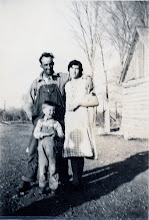

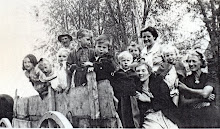
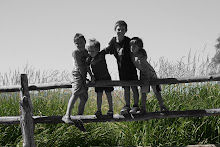
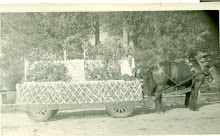
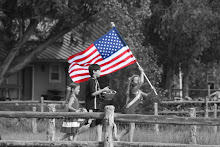
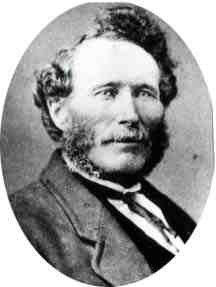
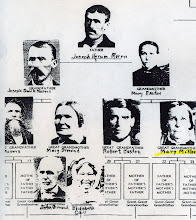
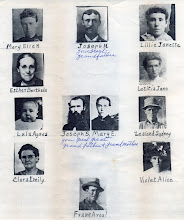
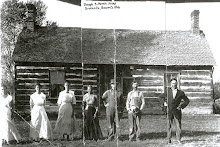
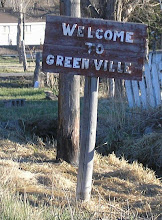
No comments:
Post a Comment